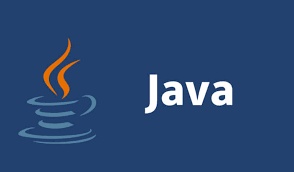In the vast landscape of programming languages, Java stands out as a stalwart, weaving a rich tapestry of applications that have shaped the digital realm. Our journey into the JavaVerse begins with an exploration of the language's origins, delves into its core principles, and navigates through the diverse ecosystems it has influenced.
Origins and Evolution
The roots of Java trace back to the early 1990s when James Gosling and his team at Sun Microsystems envisioned a programming language that could run on various devices, irrespective of their architecture. Java was born out of the necessity for a language that combined flexibility, portability, and security.
Released officially in 1995, Java swiftly gained popularity due to its "Write Once, Run Anywhere" mantra, which allowed developers to create code that could run on any device equipped with a Java Virtual Machine (JVM). This groundbreaking concept laid the foundation for Java's widespread adoption and became a driving force behind its evolution.
The Pillars of Java
Java's success can be attributed to its adherence to four fundamental principles: simplicity, object-oriented programming, platform independence, and security.
-
Simplicity: Java was designed to be straightforward and easy to learn. Its syntax bears resemblance to C++, making it accessible to developers with a background in other programming languages. This simplicity enhances productivity and encourages the creation of robust applications.
-
Object-Oriented Programming (OOP): Java's embrace of the object-oriented paradigm promotes modular and reusable code. Everything in Java is treated as an object, allowing developers to create scalable and maintainable applications. OOP principles such as encapsulation, inheritance, and polymorphism are integral to Java's design.
-
Platform Independence: The promise of "Write Once, Run Anywhere" is realized through the use of the Java Virtual Machine. Code written in Java is compiled into bytecode, which is then interpreted by the JVM. This abstraction layer ensures that Java programs can run on any device with a compatible JVM, regardless of the underlying hardware and operating system.
-
Security: Java prioritizes the safety of its users by incorporating robust security features. The language includes mechanisms such as the sandbox model, which restricts the actions of a Java program to prevent potential harm. This focus on security has made Java a preferred choice for developing applications in sensitive domains like finance and healthcare.
Ecosystems and Frameworks
The JavaVerse is not confined to the language itself; it extends into a diverse range of ecosystems and frameworks that amplify Java's capabilities.
-
Enterprise JavaBeans (EJB): In the enterprise realm, EJB provides a framework for building scalable, distributed, and transactional enterprise-level applications. It simplifies the development of complex systems by offering services such as component management and transaction handling.
-
Spring Framework: A cornerstone in the Java ecosystem, the Spring Framework simplifies the development of enterprise Java applications. It offers comprehensive infrastructure support, ensuring that developers can focus on building robust and scalable systems.
-
Android Development: Java has been a stalwart in the realm of mobile development, particularly with the Android operating system. The Android SDK leverages Java to build powerful and feature-rich mobile applications, contributing to the vast landscape of mobile technology.
-
Big Data with Apache Hadoop: Java's versatility extends to the realm of big data. Apache Hadoop, a framework for distributed storage and processing of large datasets, is primarily written in Java. It has become an integral part of big data analytics, handling massive volumes of information efficiently.
Community and Continual Innovation
The strength of the JavaVerse lies not only in its technical prowess but also in the vibrant and engaged community that surrounds it. The Java Community Process (JCP) facilitates collaboration and innovation, allowing developers to actively contribute to the evolution of the language.
Java's release cycle, marked by regular updates and feature enhancements, ensures that it remains relevant in an ever-changing technological landscape. The introduction of modules in Java 9, for instance, brought a new level of modularity to the language, enhancing code organization and maintainability.
Challenges and Future Horizons
While the JavaVerse has witnessed immense success, it is not without challenges. The language faces competition from newer languages like Kotlin, which seeks to address some of Java's perceived shortcomings. However, Java's robust ecosystem, extensive libraries, and established presence in enterprise environments continue to make it a formidable player in the programming world.
Looking ahead, the future of the JavaVerse holds exciting possibilities. The upcoming releases, such as Project Loom and Valhalla, promise to enhance concurrency and performance, pushing Java into new frontiers. Additionally, the continued integration of Java in emerging technologies like the Internet of Things (IoT) and cloud computing ensures that its influence will persist in shaping the digital landscape.
Conclusion
Our journey into the JavaVerse has unveiled a language that has not only withstood the test of time but has also evolved and adapted to meet the demands of an ever-changing technological landscape. Java's simplicity, platform independence, and robust ecosystem make it a versatile and enduring force in the world of programming. As we navigate through the JavaVerse, we find ourselves in a realm where innovation, community collaboration, and a commitment to excellence continue to propel Java forward into new and exciting territories. If you're looking Java Training Institute in Aligarh, Delhi, Noida, Lucknow, Pitampura, or other cities in India, the influence of Java resonates across the nation. Embracing the language's power becomes even more accessible with dedicated Java Training Institutes in these cities, providing a structured pathway for individuals and professionals to master the intricacies of Java programming.


No comments yet